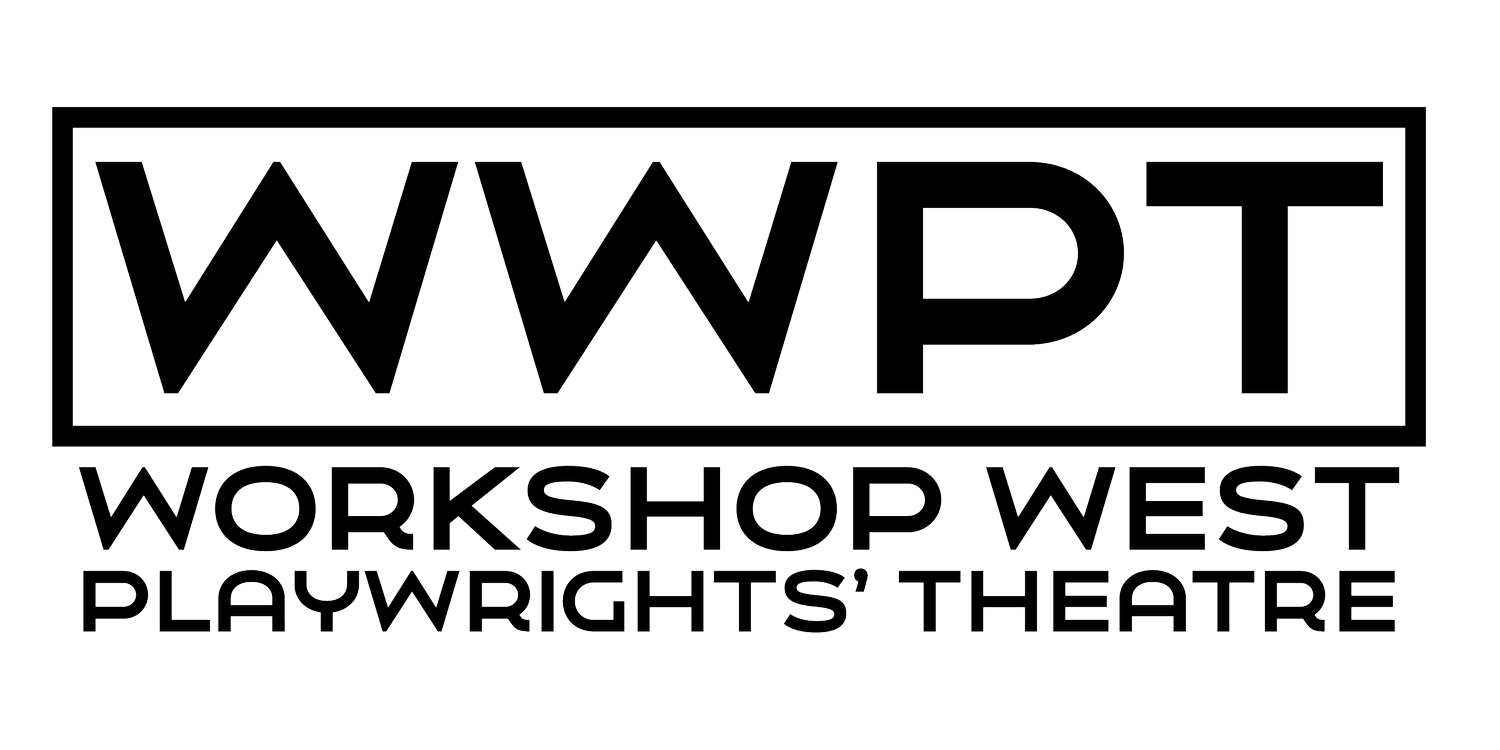The Western Canada Voice
A Conversation with Anna Galka, General Manager 1993-1996
By Jonah Dunch
Anna Galka cut her teeth in the Edmonton alternative theatre scene.
“I hadn’t been a general manager before. They gave me a chance. I did what I could in three years,” Galka says. “The people were wonderful to work with. That, I remember.”
In 1993, Galka was living in Toronto when she saw the job posting to be the joint general manager for Workshop West and Northern Light Theatre. With a business degree and an MFA in theatre management under her belt, she had been doing small contract work for arts companies when she applied for the job.
During her interview, the hiring committee gave her a scenario and asked her what she would do. The scenario included her publicist’s car breaking down on Whyte Avenue with the beer for opening night in their car. Her first question was, “Is that a bad neighborhood?”
“They all tried not to laugh at me,” Galka says with a chuckle. “I came from Toronto, and L.A. prior to that: there’s certain places [where] if a person’s car has broken down, they’re not safe, you go help them. Nothing else matters but that safety!”
Galka says that was decidedly not the answer the hiring committee was looking for, but they soon realized where she was coming from.
“There were only a few of us crazy enough to apply for the joint position,” Galka says. “And I got the job.”
Galka had never been to Edmonton, and was a self-described newbie when she flew out west to begin steering the two companies.
“It was quite the culture shock,” she says. “I remember the first time somebody opened the door for me at a place. They were so polite and so helpful—I wasn’t used to that!”
Galka walked into a deficit situation. In the three years she was on staff, the Workshop West team cut the deficit by almost 50 per cent and had a number of conversations with the bank.
“I remember a lot of the board members really stepped up and either secured or offered money,” Galka says. “For them to put their own signature on [a line of credit as guarantors] — that was a lot of faith that they had in the company.”
Galka says the two artistic directors with whom she worked during her tenure, Gerry Potter and David Mann, were highly aware of the financial side of the company’s operations.
“I found them both a general manager’s dream to work with: highly inspirational individuals who created amazing artistic products yet worked within the means of the fiscal constraints of the company,” Galka says. “And they were nice people, too!”
And even during these tough economic times, Workshop West’s artistic work was well-regarded and highly successful.
“The work we were doing was respected in the community and by the granting agencies,” Galka says. “Those were the things that we could count on.”
Among those works, Galka most proudly remembers work she was preparing as she was leaving: Brad Fraser’s Poor Superman, a co-production with Theatre Network, and the Springboards Festival, a new play festival which Workshop West started to support new Canadian work on a flexible budget.
“[It was] another way of making sure we could be financially stable,” Galka says. “There was always that buzz about it.”
Galka left the company after getting engaged in 1993, moving back to Toronto to rejoin her fiancé.
“Long-distance weddings and marriages are a little hard,” she remarks.
Galka then worked in corporate training for some time, later returning to theatre to teach at Wayne State University and the University of Windsor and to do marketing for the drama department and University Players at the University of Windsor. She now works at the University of Windsor as its Experiential Education Coordinator.
“When I was there, [the message] was always that Workshop West was the Western Canada voice of new Canadian work,” Galka says. “That was our mission.”
During her tenure, Galka was often heard saying, “Workshop West is Canadian theatre,” and was given a sweatshirt with that line when she left the company. She still owns that sweatshirt. Galka hopes Workshop West holds to that core mission of developing Canadian theatre, but can be pragmatic when necessary.
“Canadian playwrights have a lot to say,” Galka says. On the other hand, “Life in theatre is really tough, so sometimes you just have to do whatever it is you have to do to survive.”


